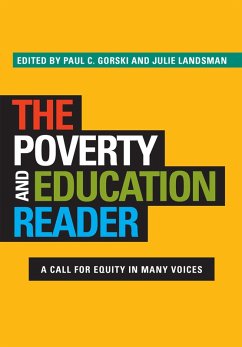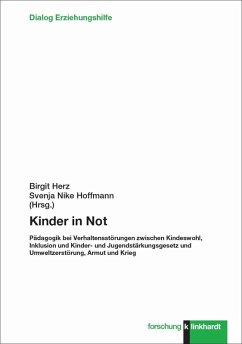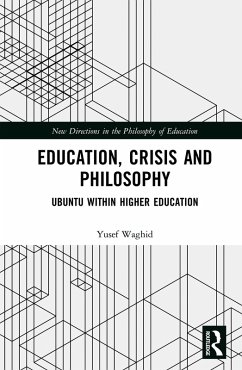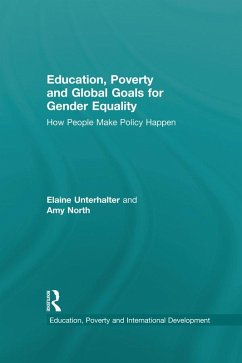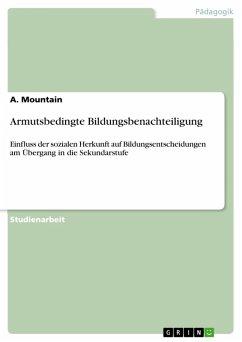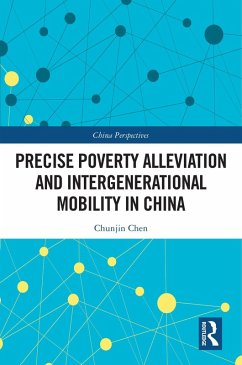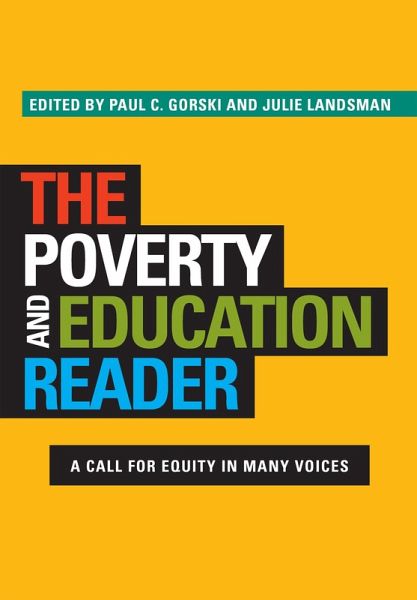
The Poverty and Education Reader (eBook, PDF)
A Call for Equity in Many Voices
Redaktion: Gorski, Paul C.; Landsman, Julie
Versandkostenfrei!
Sofort per Download lieferbar
33,95 €
inkl. MwSt.
Weitere Ausgaben:

PAYBACK Punkte
17 °P sammeln!
Through a rich mix of essays, memoirs, and poetry, the contributors to The Poverty and Education Reader bring to the fore the schooling experiences of poor and working class students, highlighting the resiliency, creativity, and educational aspirations of low-income families. They showcase proven strategies that imaginative teachers and schools have adopted for closing the opportunity gap, demonstrating how they have succeeded by working in partnership with low-income families, and despite growing class sizes, the imposition of rote pedagogical models, and teach-to-the-test mandates. The contr...
Through a rich mix of essays, memoirs, and poetry, the contributors to The Poverty and Education Reader bring to the fore the schooling experiences of poor and working class students, highlighting the resiliency, creativity, and educational aspirations of low-income families. They showcase proven strategies that imaginative teachers and schools have adopted for closing the opportunity gap, demonstrating how they have succeeded by working in partnership with low-income families, and despite growing class sizes, the imposition of rote pedagogical models, and teach-to-the-test mandates. The contributors-teachers, students, parents, educational activists, and scholars-repudiate the prevalent, but too rarely discussed, deficit views of students and families in poverty. Rather than focusing on how to "fix" poor and working class youth, they challenge us to acknowledge the ways these youth and their families are disenfranchised by educational policies and practices that deny them the opportunities enjoyed by their wealthier peers. Just as importantly, they offer effective school and classroom strategies to mitigate the effects of educational inequality on students in poverty. Rejecting the simplistic notion that a single program, policy, or pedagogy can undo social or educational inequalities, this Reader inspires and equips educators to challenge the disparities to which underserved communities are subjected. It is a positive resource for students of education and for teachers, principals, social workers, community organizers, and policy makers who want to make the promise of educational equality a reality.
Dieser Download kann aus rechtlichen Gründen nur mit Rechnungsadresse in A, B, BG, CY, CZ, D, DK, EW, E, FIN, F, GR, HR, H, IRL, I, LT, L, LR, M, NL, PL, P, R, S, SLO, SK ausgeliefert werden.




